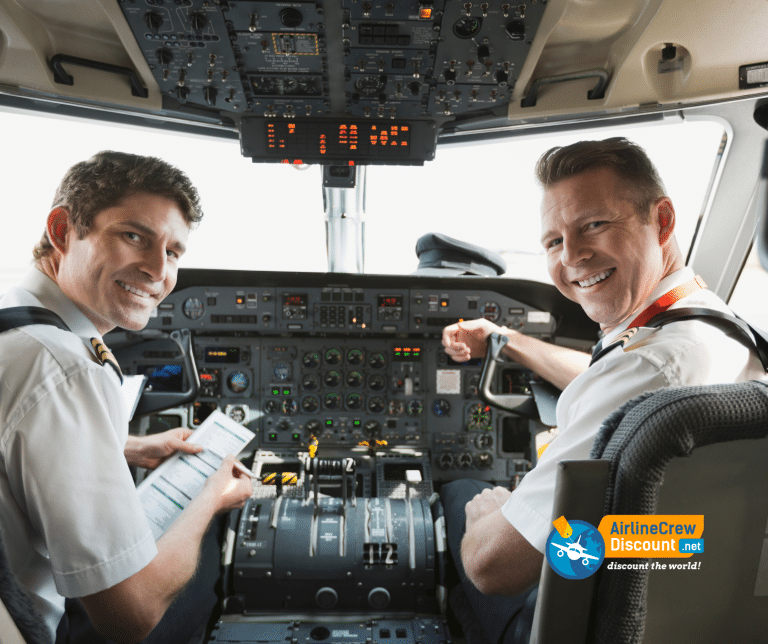Mental Health Matters: Managing Stress and Anxiety as Airline Crew

The aviation industry faces an unprecedented mental health crisis. Recent research shows that 25.4% of pilots suffer from anxiety disorders, 13.1% report depressive symptoms, and an alarming 70% of crew members experience chronic fatigue. With the Mental Health in Aviation Act of 2025 mandating non-punitive support pathways, addressing crew mental health is both a safety imperative and a moral obligation.
2025 Mental Health Snapshot
| Indicator | Prevalence |
|---|---|
| Anxiety Disorders among Pilots | 25.4% (PubMed 2025) |
| Depressive Symptoms | 13.1% (PubMed 2025) |
| Chronic Fatigue | 70% (Frontiers in Public Health 2021) |
| Alcohol Misuse | 40% (PubMed 2025) |
Unique Stressors for Airline Crew
- Circadian Disruption: Jet lag and rotating shifts impair sleep quality.
- Irregular Meal Times: Eating outside regular hours increases anxiety risk by 78%. (PubMed 2020)
- Underreporting Fears: Up to 72% avoid seeking help for fear of losing flying privileges. (FAA 2024)
- Social Isolation: Extended layovers and time-zone changes strain personal relationships.
Airline Best Practices
KLM
- Integrated Health Services: Combined physical & mental support reduced absenteeism to 7.6% in 2024. (KLM Annual Report 2024)
- Early Intervention: Proactive screening & structured return-to-work programs.
Emirates
- Sehaty Wellness: Engaged 51,000+ employees in year-round health campaigns. (Emirates Wellbeing)
- Community Clubs: 40+ sports & hobby clubs to build social support.
Singapore Airlines
- Tripartite Framework: Collaboration with CAAS & unions for customised clinical care. (CAAS 2023)
- Mandatory Peer Support: Profession-specific, confidential assistance programs.
Evidence-Based Strategies
1. Optimise Circadian Rhythms
- Use a 10,000-lux light box pre-flight for eastbound trips; wear blue-blocking glasses pre-sleep on westbound legs.
- Take 0.5–3 mg melatonin 30 minutes before desired sleep time for 3–4 days post-arrival.
2. Nutrition & Meal Timing
| Strategy | Benefit | Implementation |
|---|---|---|
| 12-Hour Eating Window | Reduces anxiety by 16%. | Limit meals to 08:00–20:00 daily. (PubMed 2020) |
| Early Dinner | Lowers stress levels. | Finish dinner by 20:00 on shift days. |
3. Breathing & Mindfulness
- Box Breathing (4-4-4-4): Inhale 4 s, hold 4 s, exhale 4 s, hold 4 s—repeat 2 min.
- 4-7-8 Technique: Inhale 4 s, hold 7 s, exhale 8 s—ideal for sleep onset.
- Progressive Muscle Relaxation: Tense/release muscle groups to ease tension.
4. Physical Activity
- Perform a 3-minute stretch routine every 90 minutes in flight (neck rolls, calf raises).
- Use hotel-room bodyweight circuits or walking meditation during layovers.
Professional Support & Resources
Peer Support
Mandatory in Europe since 2023, peer support programs offer confidential, non-diagnostic assistance from trained colleagues. Major airlines like British Airways and EasyJet report improved crew well-being through these initiatives.
Frequently Asked Questions (FAQ)
Will seeking mental health treatment affect my career?
No—under the Mental Health in Aviation Act of 2025, disclosure triggers support, not automatic grounding. FAA regulations are being updated to protect careers.
How can I manage chronic fatigue on irregular schedules?
Combine sleep hygiene, strategic light exposure, melatonin supplementation, and the 12-hour eating window to realign circadian rhythms and reduce fatigue.
Key Takeaways & Action Steps
- Download an aviation mental health app (e.g., MedAire Wellbeing Services).
- Practice box breathing for 2 minutes on your next break.
- Implement the 12-hour eating window this week.
- Share your wellness tips in the comments below to support your colleagues.
Share Your Tips
Your insights matter! Post your stress-management techniques below. Together, we can build a stronger, healthier crew community.
References for Extra Info
- Mental Health in Aviation Act of 2025
- Pilot mental health in France survey (PubMed 2025)
- AFA Employee Assistance Program
- Singapore’s Tripartite Mental Health Framework
- FAA Pilot Mental-Health ARC (2024)
- Flight attendant mental health study (PubMed 2020)
- KLM Annual Report 2024
- Emirates Wellbeing
Copyright & Sharing
© 2025 AirlineCrewDiscount.net. This article may be shared with attribution.
Disclaimer: This content is informational and not a substitute for professional medical advice.
